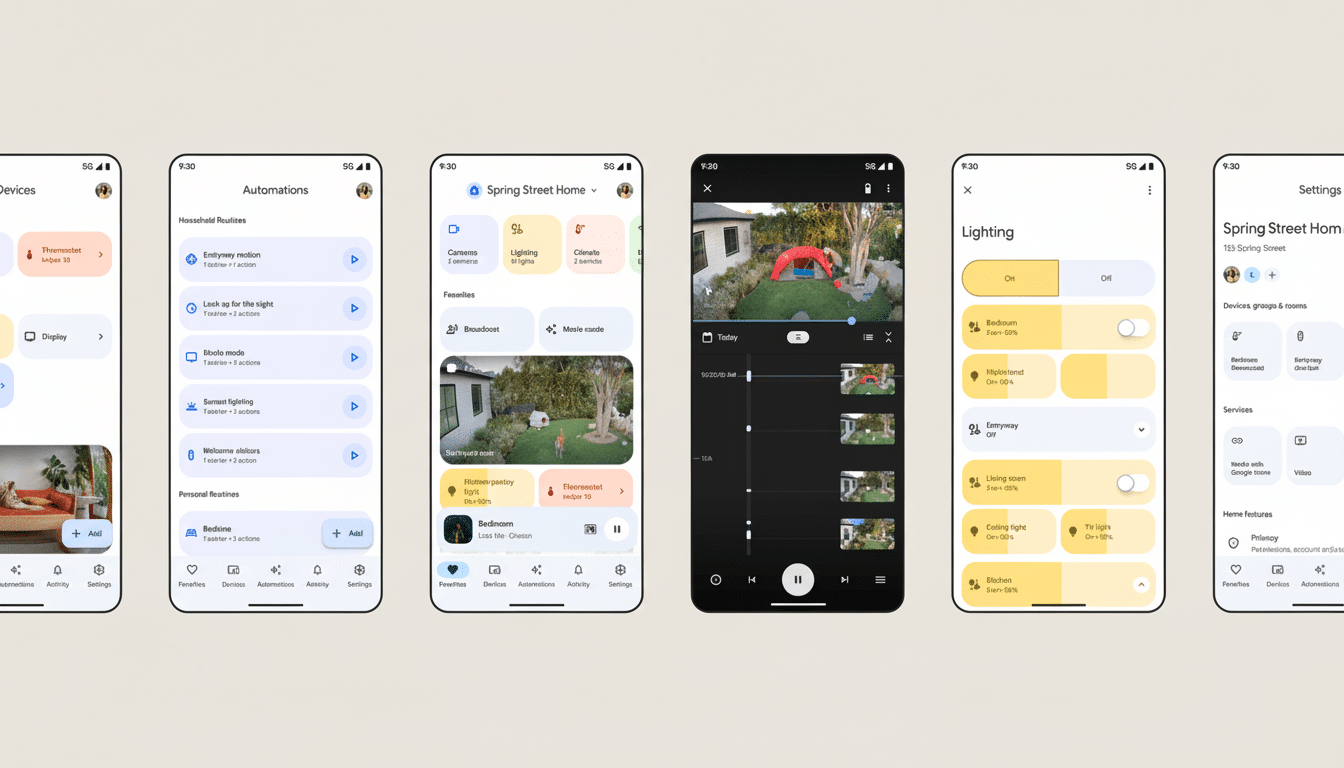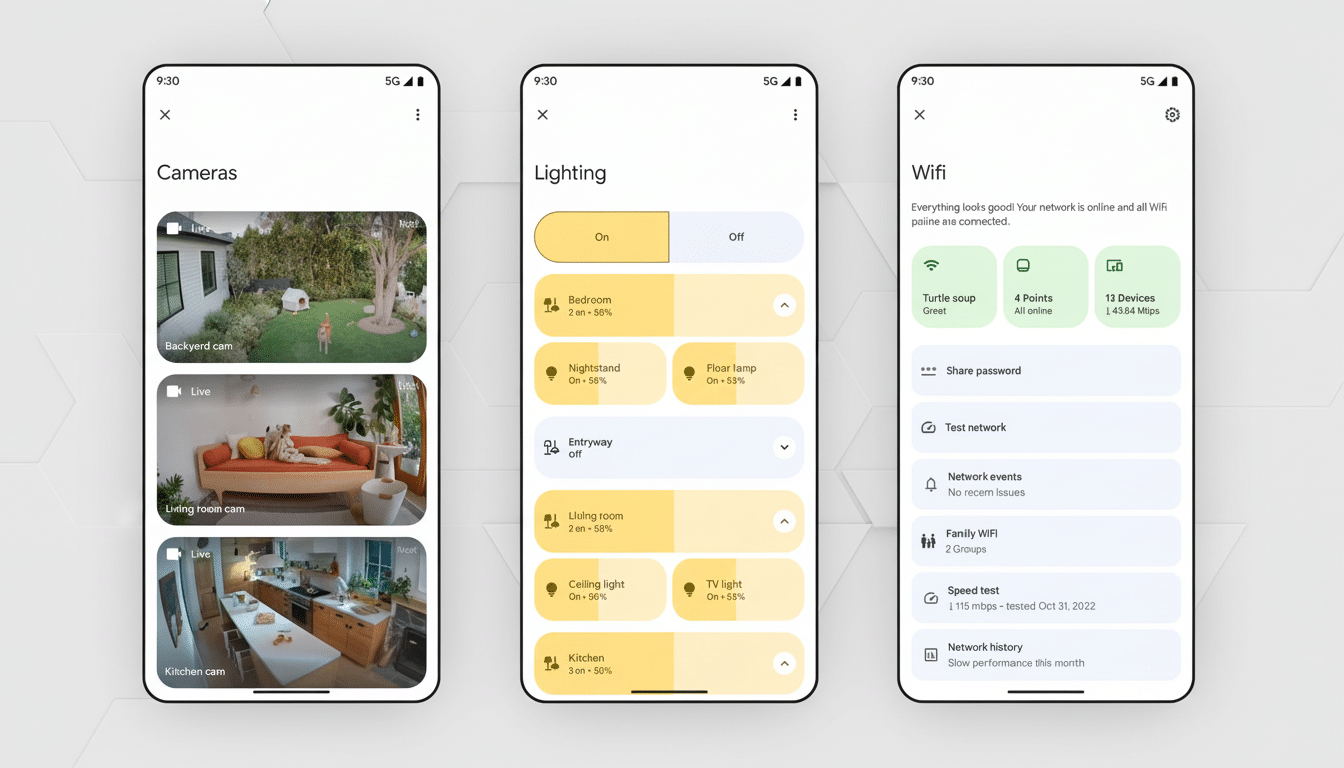It appears as if the company is preparing a new daily digest for the smart home ecosystem, which will be called Home Brief, as uncovered in an APK teardown of the Google Home app.
Strings and UI elements found in version 4.0.53.2 suggest you’ll get a feature that summarizes all the action from your home — probably starting with cameras — so you can quickly skim through a single, AI-generated digest instead of going through dozens of alerts manually.

What Home Brief Looks Like in the Google Home App
Hidden references suggest AI-generated “descriptions” that prompt you to look over a Home Brief at the end of the day. That language, along with an updated settings screen that replaces more generic verbiage (the previous menu referred to “daily summaries of what happened at home”) with the specific phrase “your Home Brief,” indicates a branded version of such a digest, polished and fine-tuned. Security is one of the most direct uses: consolidating camera notifications into a single human-readable timeline highlighting people, packages, and significant motion rather than flooding you with every minuscule ping.
The idea is Samsung’s Now Brief — a short daily summary of household goings-on, moved into Google-land. In practical terms, it might be something like: “Two familiar faces spotted by the front door, package dropped off at noon, back gate opened once, no anomalous motion in the garage.” It is the sort of summary that transforms raw sensor noise into context you can act upon.
Premium Paywall and a Potential Nest Aware Rebrand
The teardown also references a paywall. UI copy and fine print note that the sorts in question are part of Home Brief, which does seem to suggest a rebrand for Nest Aware, Google’s longstanding subscription for video history and advanced detection. References next to Home Brief namecheck Gemini Live and Ask Home as premium features as well, further bolstering the notion that cleverer AIs are now being merged under a single subscription roof.
For comparison, Nest Aware today includes event-based video history and intelligent alerts across the board — with some markets receiving a 30-day trial for free.
It’s got trial-related strings for “Google Home Premium” inside it, which suggests it might be a similar on-ramp. A rebrand might help streamline a confusing lineup, and it would fit in with Google’s overarching move to integrate Gemini across hardware and services.

How a Daily Home Digest in Google Home Might Work
If there’s a version 1.0 that feels useful, it might be simply to start with smart cameras (which are the source of over half of all the alerts we see in our homes) and already utilize a combination of on-device and cloud AI to categorize potential threats. From there, Home Brief could incorporate events from doorbells, locks, thermostats, and sensors to flag “what changed” since your last check-in. Consider it your morning or evening routine for your home: fewer interruptions during the day, a clearer head when you have time to check.
Look for recaps in natural-language summaries, timeline anchors, and pointers to the key clips in the podcast below. If Google turns this into more than just security, it could have a broader Brief that includes energy aberrations, atypical thermostat settings, or routines that didn’t fire — great for troubleshooting. This follows patterns seen elsewhere: Apple’s HomeKit Secure Video also condenses camera events, and Amazon has experimented in its own ecosystem with proactive suggestions and event digests. A Home Brief consolidates that under a (Google) banner and in a (Google) vocabulary.
Why Home Brief Matters for Modern Smart Homes
Smarter summarization is overdue. Industry researchers like Parks Associates have determined that more than 50% of U.S. broadband households now contain at least one smart home device, with cameras and doorbells being some of the most popular items. With more and more devices, people will get overwhelmed by notifications. One of the few ways to cut down on noise and not lose awareness is a short, reliable digest.
There are also privacy and trust issues. If Home Brief leans on Gemini for summarization, Google will be forced to explain what’s done locally and in the cloud, how long clips or metadata are stored, and how users can manage training data. Clear, opt-in controls and explanations will be key, especially for features that affect the camera or voice.
The Caveats of Reading APK Tea Leaves for Google Home
As with any APK teardown, features can change. Strings and screens suggest an intention but do not promise exactly when, where, or in what final garb. The Google Home app has been iterating quickly — most recently focusing on a new look for iOS — and server-side flags frequently block what users are able to see. However, the density of references in version 4.0.53.2 makes us think that Home Brief isn’t some far-off experiment either.
If Google pulls it off, Home Brief could wind up being among the more practical additions to the Home ecosystem this year: a human-friendly recap that treats your time with respect, filters through the noise, and makes everything else Google is selling you on AI work — Gemini Live voice interactions and Ask Home control — feel like a cohesive experience.

